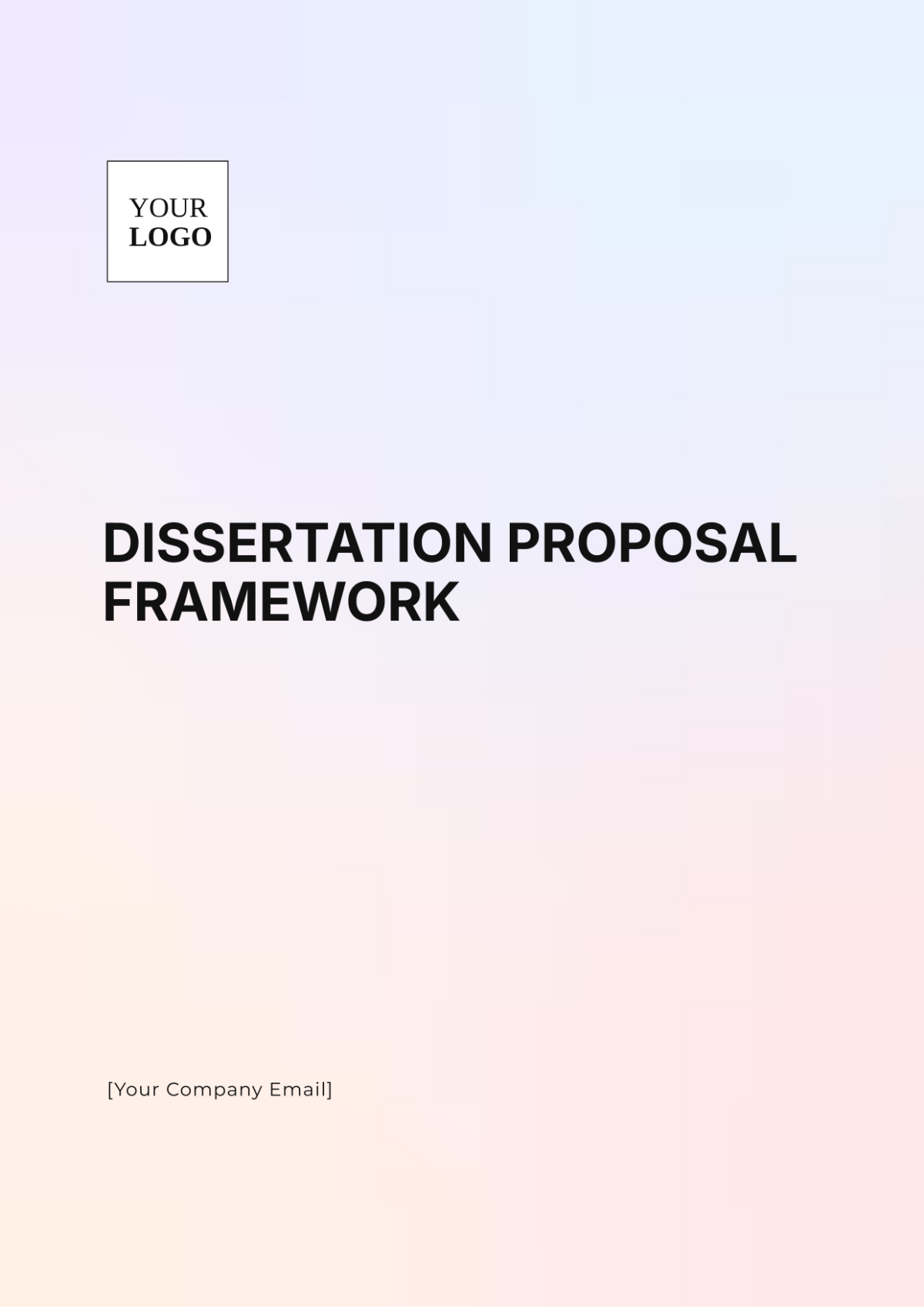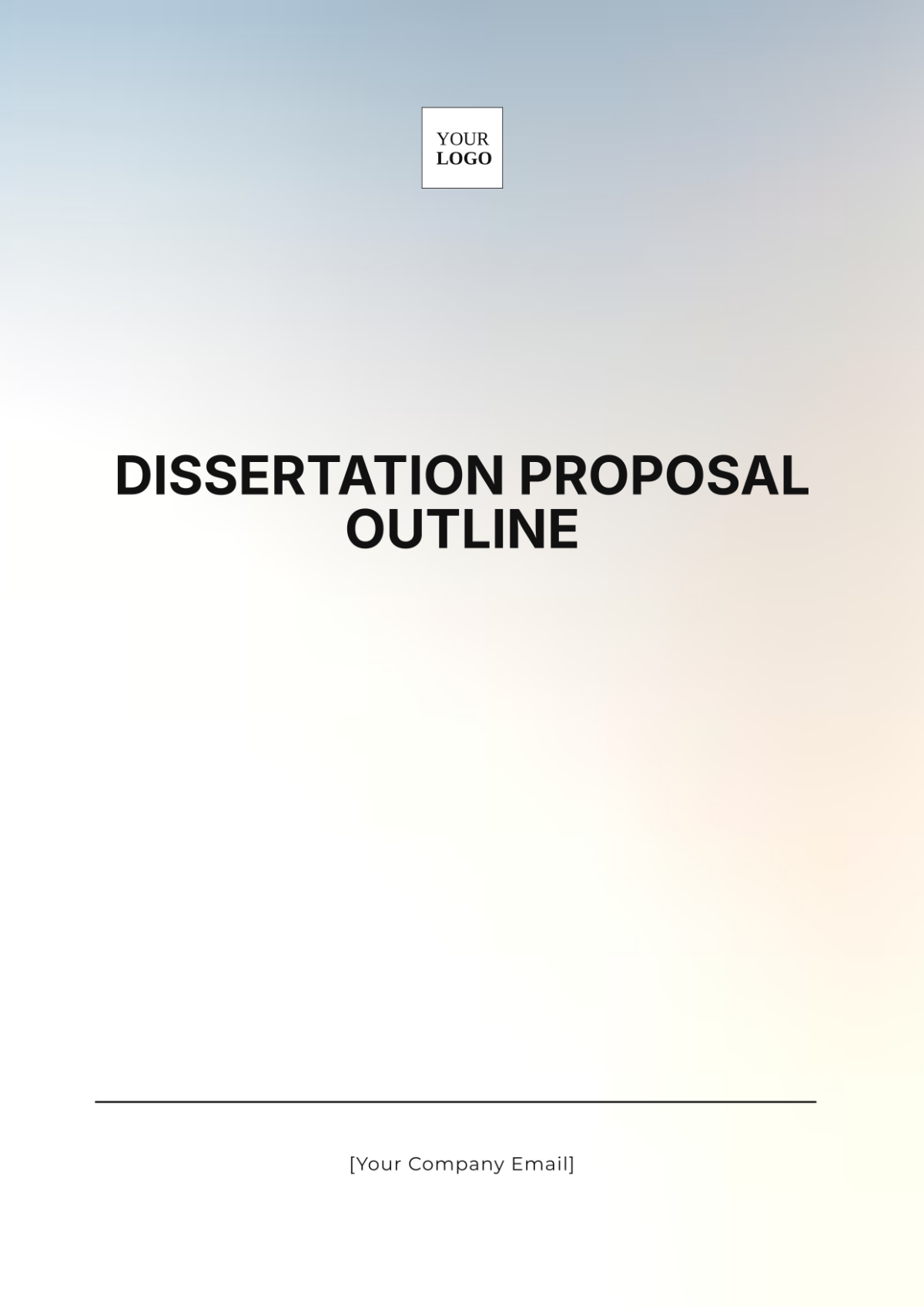MBA Proposal
I. Executive Summary
A. Brief Overview of the Proposal
This proposal outlines a comprehensive strategy to enhance the digital marketing efforts of [Your Company Name], focusing on improving customer acquisition and engagement through data-driven tactics. By leveraging advanced analytics and innovative marketing techniques, the company aims to maximize its online presence and drive sales growth. The outlined plan will provide a framework for measurable results and sustainable improvement in digital marketing effectiveness.
B. Key Objectives
The primary objective is to boost online lead generation by [00]% within six months, ensuring that the marketing strategies are aligned with the company’s overall growth targets. Additionally, we aim to reduce the cost-per-click (CPC) by [00]% through optimized ad targeting and enhanced content strategies. Achieving these objectives will create a solid foundation for future digital initiatives and facilitate ongoing customer engagement.
C. Expected Outcomes
The anticipated outcomes include a significant increase in website traffic and improved conversion rates, which will lead to a projected revenue increase of [00]%. Furthermore, implementing personalized marketing strategies is expected to foster greater customer loyalty and brand awareness. Ultimately, the proposal aims to establish [Your Company Name] as a leader in the digital marketing landscape within its industry.
D. Importance of the Proposal
As the marketplace continues to evolve toward digital channels, it is crucial for [Your Company Name] to adapt its marketing strategies accordingly. This proposal will provide actionable insights and techniques to enhance digital marketing efforts and meet the demands of a competitive environment. By investing in these strategies, the company will be better positioned to capture new market opportunities and sustain long-term growth.
II. Introduction
A. Background Information
[Your Company Name] has established itself as a key player in the consumer goods sector, known for its high-quality products and commitment to customer satisfaction. Despite its strong offline presence, the company has faced challenges in translating that success to the digital space, leading to missed opportunities for growth. An effective digital marketing strategy is essential to engage the modern consumer and drive sales in an increasingly digital world.
B. Problem Statement
Currently, [Your Company Name]’s digital marketing efforts are hampered by a high cost-per-click (CPC) and low conversion rates, indicating inefficiencies in advertising spend. These issues stem from a lack of targeted marketing and insufficient use of data analytics to inform decision-making. As a result, the company is not achieving its potential in attracting and retaining customers through online channels.
C. Purpose of the Proposal
This proposal aims to outline a structured approach to refine and enhance [Your Company Name]'s digital marketing strategies. By utilizing data-driven insights, the plan seeks to address current inefficiencies and improve overall performance. Ultimately, the goal is to create a scalable digital marketing framework that aligns with the company’s long-term objectives.
D. Scope of the Proposal
The proposal will focus on key areas of digital marketing, including paid advertising, content marketing, and search engine optimization (SEO). Each area will be analyzed for potential improvements and implemented over a six-month period. This comprehensive approach ensures that all facets of digital marketing are addressed, facilitating cohesive growth.
III. Literature Review
A. Relevant Theories and Concepts
Digital marketing is grounded in various theories, including consumer behavior and engagement models that emphasize the importance of understanding customer needs. Strategies such as search engine optimization (SEO) and pay-per-click (PPC) advertising are vital components that drive traffic and conversions. These theories highlight the necessity of aligning marketing efforts with consumer preferences to enhance overall effectiveness.
B. Previous Research Findings
Numerous studies indicate that personalized advertising significantly increases conversion rates, with some companies reporting up to a [00]% improvement when tailoring content to specific audience segments. Additionally, research has shown that businesses utilizing effective SEO practices can achieve a [00]% conversion rate on average, demonstrating the power of visibility in driving sales. These findings emphasize the importance of data-driven strategies in achieving marketing success.
C. Gaps in Existing Literature
While extensive research exists on digital marketing strategies, there is a notable lack of literature focused on mid-sized companies operating in niche markets like [Your Company Name]. Most studies tend to concentrate on larger organizations with substantial marketing budgets, leaving a gap in insights for smaller enterprises. Addressing this gap is crucial for developing targeted strategies that cater to the unique challenges faced by mid-sized companies.
IV. Objectives
A. Primary Objectives
The primary objective is to increase online lead generation by [00]% within six months, ensuring that the company effectively reaches its target audience. In parallel, we aim to enhance ad targeting, which will result in a [00]% reduction in cost-per-click (CPC) for paid campaigns. Achieving these objectives will establish a strong digital presence and create a more efficient marketing strategy.
B. Secondary Objectives
A secondary objective is to grow website traffic by [00]%, using improved SEO and content marketing strategies to drive organic reach. Additionally, enhancing customer retention through targeted email marketing campaigns will foster stronger relationships with existing customers. These secondary goals will support the primary objectives and contribute to the overall growth of the company.
C. Long-term Goals
The long-term goal is to develop a sustainable digital marketing strategy that not only meets immediate targets but can also adapt to future market changes. By establishing a robust framework for ongoing digital marketing efforts, [Your Company Name] can continue to evolve and expand its online presence. This strategic approach will enable the company to maintain its competitive edge in the digital landscape.
V. Methodology
A. Research Design
The research design will utilize a mixed-method approach, integrating both qualitative and quantitative analyses to gain a comprehensive understanding of current marketing performance. This will involve gathering data from customer feedback, online analytics, and market trends to inform decision-making. By combining these methods, we can develop actionable insights that drive strategy formulation.
B. Data Analysis
Data analysis will employ advanced tools, such as Google Analytics and SEMrush, to track key performance indicators (KPIs) and assess the effectiveness of current marketing strategies. Insights gleaned from this analysis will inform targeted adjustments and optimize campaigns for better performance. The focus will be on interpreting data patterns to identify opportunities for improvement in customer engagement and conversion rates.
C. Timeline for Research
The research timeline will span six months, beginning with data collection and analysis in the first two months. Following this, we will implement new strategies in the third month, followed by continuous monitoring and adjustment throughout the final three months. This structured timeline ensures that the project remains on track and adapts to insights gained during the implementation phase.
VI. Budget
A. Estimated Costs
Personnel Costs
The personnel costs will include hiring a digital marketing consultant and a data analyst, totaling approximately $[00]. This investment is crucial as these professionals bring specialized expertise to enhance our digital marketing strategies. Furthermore, the consultant will play a key role in training internal staff to ensure knowledge transfer and capacity building within the organization.
Equipment and Supplies
We estimate equipment and software costs to be around $[00], covering essential tools such as Google Ads and analytics platforms like SEMrush. These tools are vital for implementing effective marketing strategies, tracking performance metrics, and optimizing campaigns in real time. Investing in these resources will allow the marketing team to make data-driven decisions, ensuring a higher return on investment.
Other Expenses
An allocation of $[00] will be directed toward online advertising campaigns across various platforms, including Google Ads and social media channels. This budget will enable [Your Company Name] to reach a wider audience and effectively promote its products. Additionally, we will reserve funds for content creation and potential A/B testing to refine marketing messages and tactics based on performance data.
B. Funding Sources
The proposed budget will be primarily funded from [Your Company Name]’s existing marketing budget, which has room for strategic investments in digital initiatives. Additionally, we will explore reallocating a portion of next year’s digital transformation fund to support this proposal. By ensuring clear communication of the expected outcomes and ROI, we can garner the necessary support from senior management for this initiative.
VII. Implementation Plan
A. Key Milestones
The initial data analysis will be completed by the end of Month 2, setting the stage for informed decision-making and strategy development. This milestone is crucial for identifying current performance metrics and areas needing improvement. Timely completion of this analysis will ensure that we can proceed with strategy formulation without delays.
Strategy launch is scheduled for the beginning of Month 3, with a comprehensive rollout of the new digital marketing initiatives. This phase will involve coordinating with the marketing team to ensure that all stakeholders are aligned and prepared for implementation. Successful execution at this stage is vital for building momentum and confidence in the proposed strategies.
The first performance evaluation will occur by the end of Month 4, where we will assess the effectiveness of the newly implemented strategies against our established KPIs. This evaluation will allow us to identify what is working well and what needs adjustment, ensuring that we stay on track to meet our objectives. Regular check-ins and evaluations will be critical for making informed decisions and maintaining accountability throughout the process.
B. Responsibilities of Team Members
The Marketing Manager will oversee the entire campaign, coordinating efforts between the digital marketing consultant, internal teams, and stakeholders. This role is essential for ensuring that the project remains on schedule and that all team members are engaged and contributing effectively. The manager will also facilitate communication and address any challenges that arise during the implementation phase.
The Digital Consultant will take the lead in developing and executing the marketing strategies, using their expertise to optimize campaigns for better performance. This role includes conducting training sessions for internal staff to ensure they are equipped to manage ongoing marketing efforts. The consultant will also provide insights and recommendations based on real-time data analysis.
The Data Analyst will be responsible for managing tracking and reporting, ensuring that we have accurate and timely insights into campaign performance. This role will involve continuous monitoring of KPIs and generating reports that help guide strategic adjustments. By providing actionable insights, the analyst will play a key role in maximizing the effectiveness of the marketing efforts.
C. Risk Management Strategy
To address potential risks, such as an increase in advertising costs or delays in data collection, we will implement a contingency plan that includes reallocating budget resources and increasing automation in data analysis. This approach will allow us to respond quickly to unforeseen challenges and ensure that our strategies remain on track. Regular risk assessments will be conducted to identify emerging issues early and mitigate their impact on the project.
VIII. Evaluation and Monitoring
A. Metrics for Success
Success will be measured using key performance indicators (KPIs) such as lead generation rates, cost-per-click (CPC) reductions, and conversion rates. By tracking these metrics, we can assess the effectiveness of our digital marketing strategies and make data-informed decisions for future campaigns. Additionally, we will monitor customer engagement metrics, including time spent on the website and interaction rates with digital content.
B. Evaluation Timeline
Monthly reports will be generated to assess progress against our objectives, allowing for timely adjustments to strategies as needed. This ongoing evaluation will ensure that we remain aligned with our goals and can pivot quickly if certain tactics are underperforming. A comprehensive final review will be conducted at the end of Month 6, summarizing our achievements and outlining recommendations for continued growth.
C. Reporting Mechanisms
We will establish regular meetings with stakeholders to discuss progress, insights, and any adjustments needed to our strategies. Bi-weekly updates will be provided through dashboards and email reports, ensuring transparency and accountability throughout the project. These reporting mechanisms will facilitate open communication and enable timely decision-making.
IX. Conclusion
A. Summary of Key Points
This proposal outlines a strategic approach to enhance [Your Company Name]'s digital marketing efforts, addressing current inefficiencies and aligning with broader business goals. By implementing data-driven strategies and focusing on customer engagement, we aim to significantly improve online lead generation and conversion rates. The comprehensive budget and implementation plan ensure that the project is well-structured and poised for success.
B. Call to Action
We recommend immediate approval of this proposal to capitalize on the opportunities presented by digital marketing. By investing in these strategies, [Your Company Name] can enhance its market position, drive revenue growth, and foster long-term customer relationships. The time to act is now, as the digital landscape is rapidly evolving, and we must adapt to stay competitive.
C. Final Remarks
The proposed enhancements to our digital marketing strategies represent a critical step toward ensuring [Your Company Name]'s success in an increasingly digital world. By embracing data-driven insights and innovative approaches, we can better meet the needs of our customers and achieve our business objectives. Together, we can build a stronger foundation for sustainable growth and profitability.





























